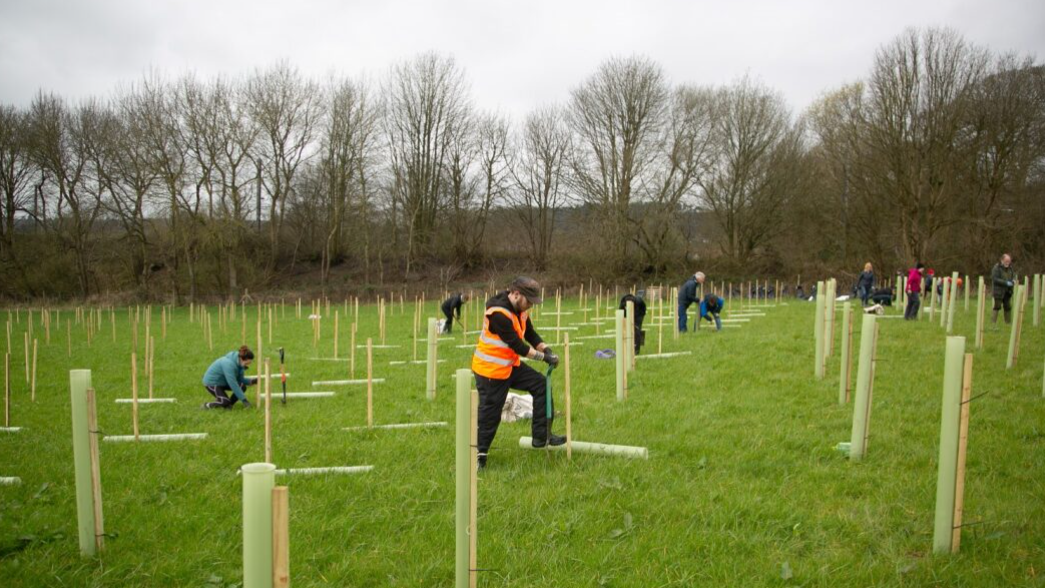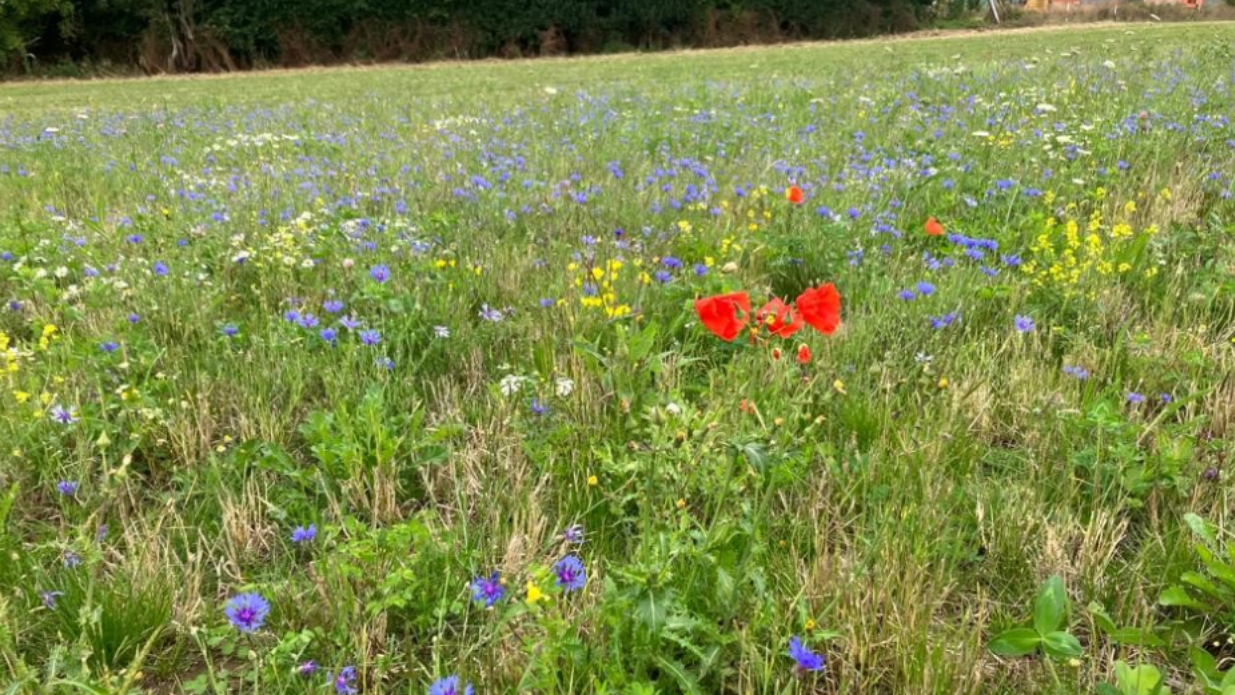Severn Trent is set to more than double its biodiversity targets by helping to transform 11,000ha of land into vibrant and stunning natural habitat.
The water company launched its Great Big Nature Boost in 2020, with the ambitious aim of transforming 5,000ha into thriving areas for fauna, flora, insects and wildlife across the region by 2025.
But Severn Trent’s Principal Ecologist Graham Osborn said the target is set to be smashed following a huge number of nature-based projects, including funding schemes with community groups, environmental charities and councils.
Graham leads an award-winning biodiversity team at Severn Trent who have been involved in multiple projects, including helping revive peat bogs and moorland in Derbyshire and creating new wildflower meadows across the region.

The dad-of-two, an Environmental Science graduate, said: “We have gone further and faster than we ever imagined and have had a positive impact on more than 11,000ha so far with the help of our partners, including Wildlife Trusts, National Trust, Moors for the Future and many more.
“What has also helped is the public now seem far more aware of biodiversity, or what nature means and how important it is to our countryside and our planet.
“And what is good for nature is good for water, as these schemes can help improve water quality and boost flood prevention in vulnerable areas.”
Biodiversity projects have included helping reintroduce families of beavers to Willington Wetlands in Derbyshire and Idle Valley Nature Reserve in Nottinghamshire for the first time in 800 years. That scheme, run by Derbyshire and Nottinghamshire Wildlife Trusts, has seen the cute mammals create dams to slow flow from waterways and onto wetlands, to help prevent flooding.
Graham said: “Lifting the lid off the box to let the beaver out was a personal highlight from the past four years, but there are so many highlights from our dedicated team, which has grown from four to 15 people, including our own ecologists, environmental scientists and biodiversity experts.”
Other projects have included helping create flower rich road-side verges in Shropshire and reinstating meadows in Warwickshire to boost populations of wildflowers, fungi, bees, butterflies and bats. The meadows improve water quality by acting as a natural filter help with flood prevention. Increasing the biodiversity also improves soil quality and pollination, reducing the need for fertilisers and supports more predator insects, reducing the need for pesticides.
Severn Trent has also helped fund a ‘hedgehog highway’ in Keyworth in Nottingham and worked with farmers across the region to reduce pesticides through our STEPS grants (Severn Trent Environmental Protection Scheme) to improve river water quality.
Separately, Severn Trent is delivering on its pledge to plant 1.3m trees by 2027, and supporting its commitment to plant the Birmingham 2022 Commonwealth Games, by creating 2,022 acres of new woodlands. Schoolkids recently helped plant a new 42-acre site near Bromsgrove, in partnership with the National Trust, which will eventually grow to become a stunning forest for locals to enjoy for generations to come.

Graham said young people were the key to getting the biodiversity message across to adults. “In the past children were taught about the dangers of smoking because they would tell their parents and the message was more likely to get through,” he said.
“It’s the same with biodiversity, as children can pass on these important messages to parents and guardians.
“As a father of two I want to do everything I can do to help protect the environment for all our children, but we all need to play our part.”
Graham said that insects were vital for the ecosystem.
“The truth is that if humans did not exist tomorrow, then the earth would carry on spinning and nothing much would change. But if all insects vanished from the planet that would cause major disruption, including in the food chain.”
His team also help with ensuring all Severn Trent capital projects have a positive environmental impact, with the aim of boosting ‘biodiversity net gain’ at each site by 15% – well above Government requirements of 10%.
Speaking to Nottinghamshire-based Graham, who has had a lifelong love of all things nature, it is clear he has a genuine passion for biodiversity.
“Some people love the city, but I love being in the countryside and enjoying nature. That is something I’ve already passed on to my children, who are talking about becoming zoo keepers and suchlike when they are older!” he laughed.
“I’m a big believer in the old Greek saying, ‘A society grows great when old men plant trees in whose shade they shall never sit’.
“We may not see all the benefits of what we are doing today, but our children and their children will if we all pull together and do our bit for biodiversity.”



